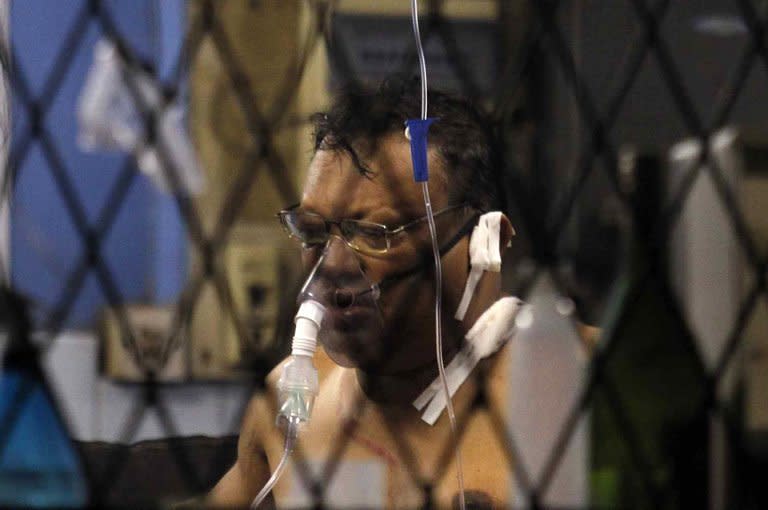Sri Lanka paper says unbowed after reporter shooting
A Sri Lankan newspaper vowed it would not be intimidated on Sunday after an investigative reporter survived an assassination bid, the latest in a string of attacks against the country's media. Faraz Shauketaly, 54, from the privately owned Sunday Leader, was in intensive care at a Colombo hospital but making a "steady recovery" after a bullet was removed from his neck, hospital spokeswoman Pushpa Soysa told AFP. The newspaper said the Friday night shooting at his home in a suburb of Colombo brought back memories of the death of its founding editor, Lasantha Wickrematunge, who was gunned down in January 2009. "However, one thing is for sure, the attack on Faraz will not deter the newspaper," the Leader said adding that the paper will "remain unbowed and unafraid". Shauketaly had reported on alleged corruption in the country's energy sector and his editor Shakuntala Perera said she believed the gunmen tried to kill him because of his writing. Shauketaly, a dual British and Sri Lankan national, has been visited in hospital by British consular staff in Colombo. The Foreign Office in London voiced shock Saturday over the shooting and Britain's South Asia minister Alistair Burt urged the Sri Lankan authorities to identify those behind the attack. "There has been a range of attacks in Sri Lanka on journalists, civil society organisations and others in recent years," Burt said in a statement. "To date, too many incidents have had little investigation and no resolution." Sri Lanka's Editors' Guild and the Free Media Movement, a rights group, condemned the shooting and said the government was leaving reporters vulnerable to such attacks by failing to bring perpetrators to justice. Rights groups say at least 17 journalists and media workers have been killed in Sri Lanka in the past decade. Many Sri Lankan journalists have also fled the country fearing violence. Sri Lanka lifted a state of emergency in 2011, but media rights groups say journalists have been forced to self-censor their work due to fear of attacks.



